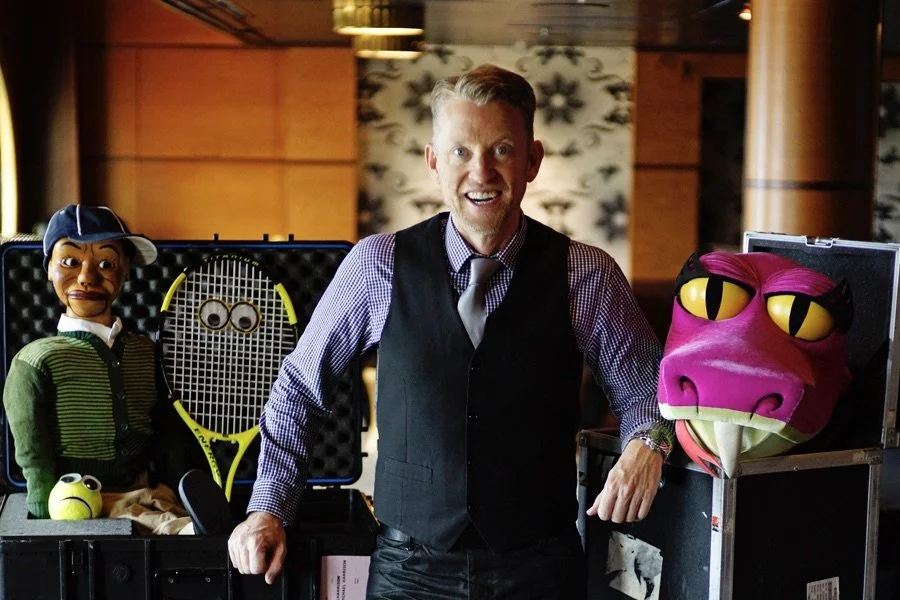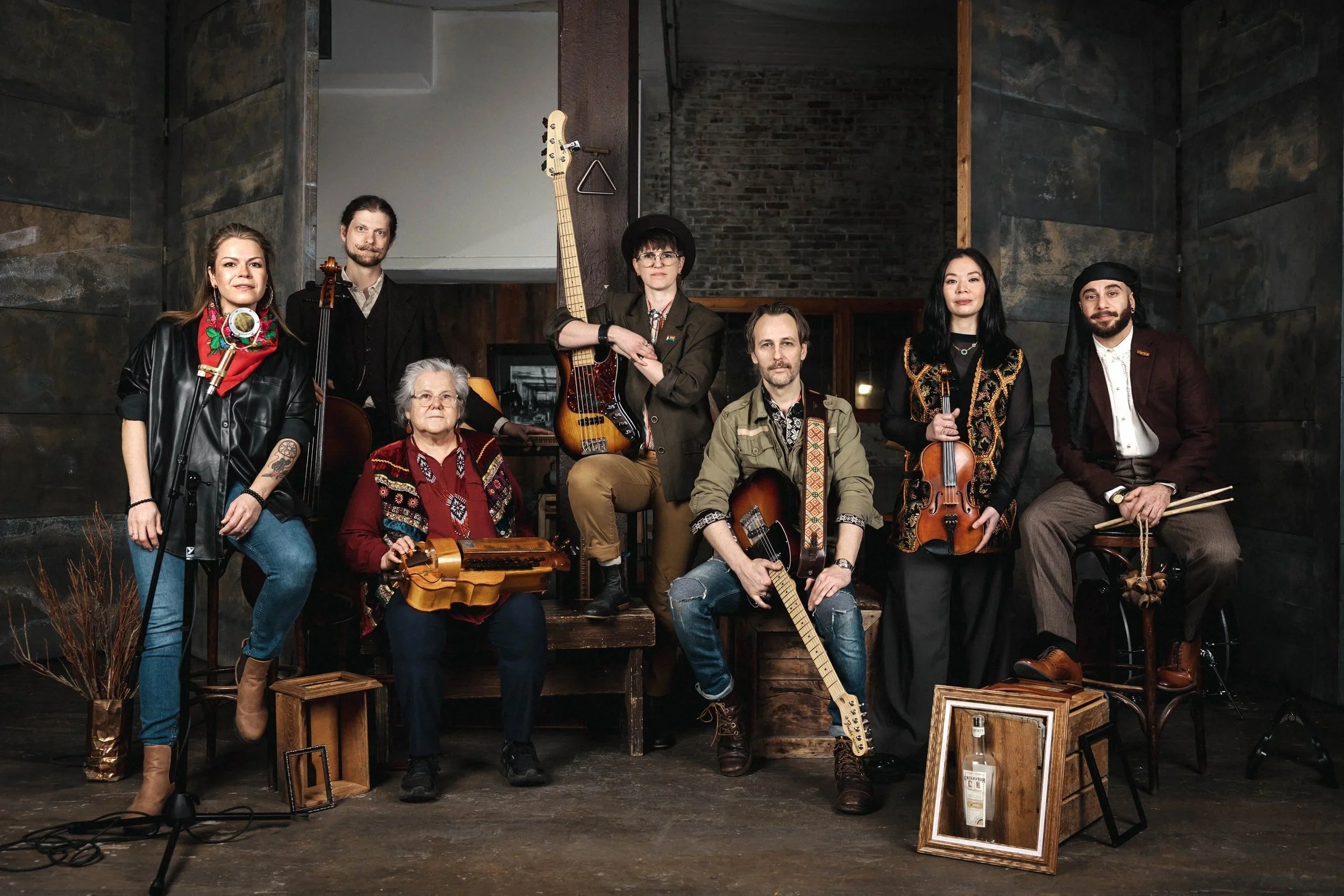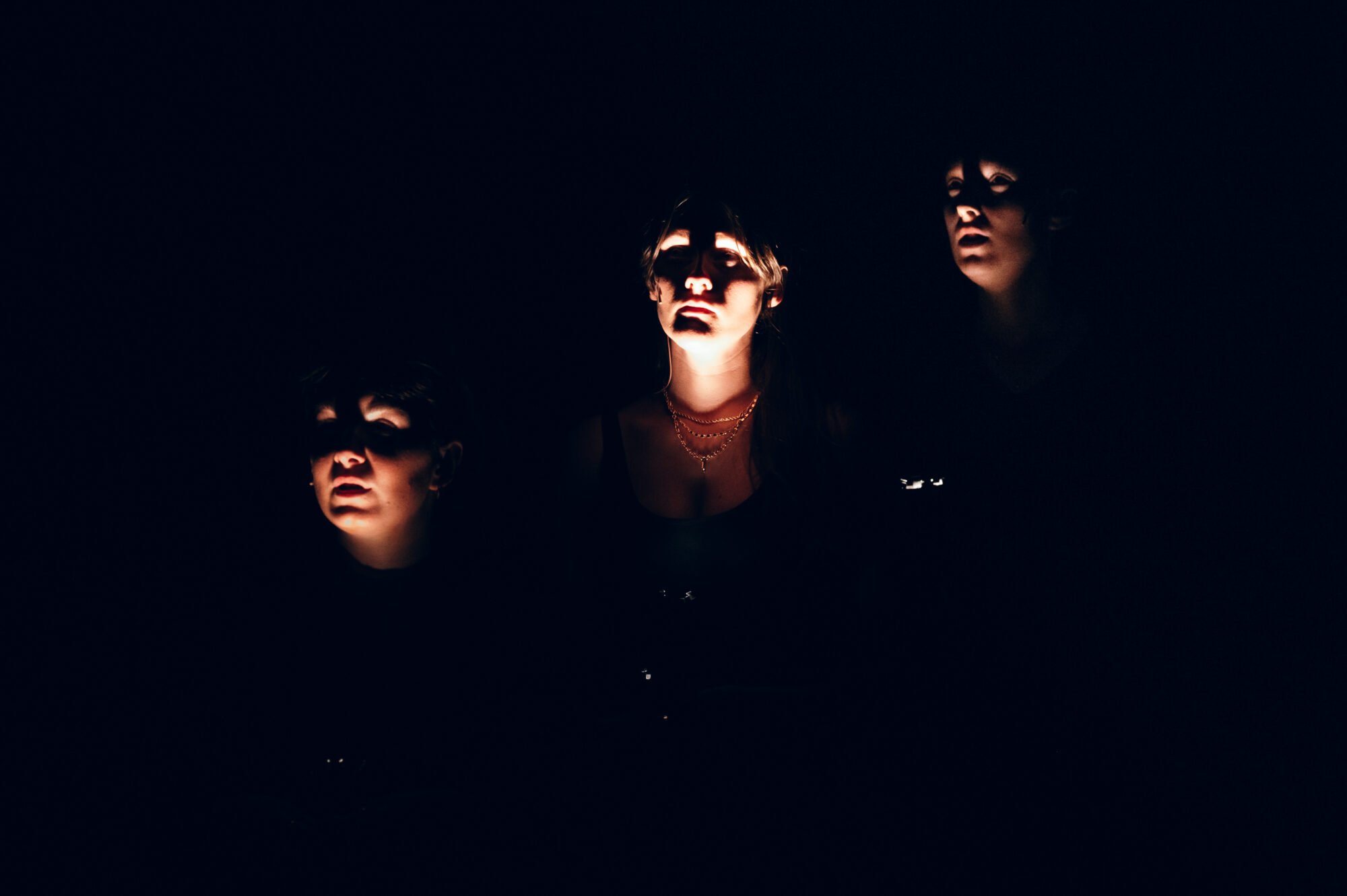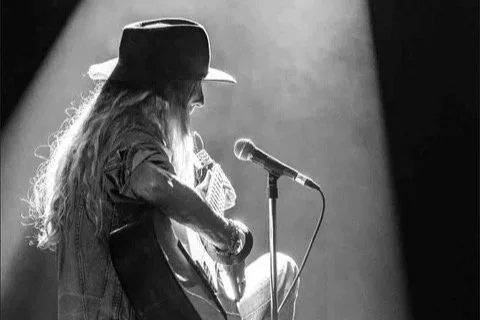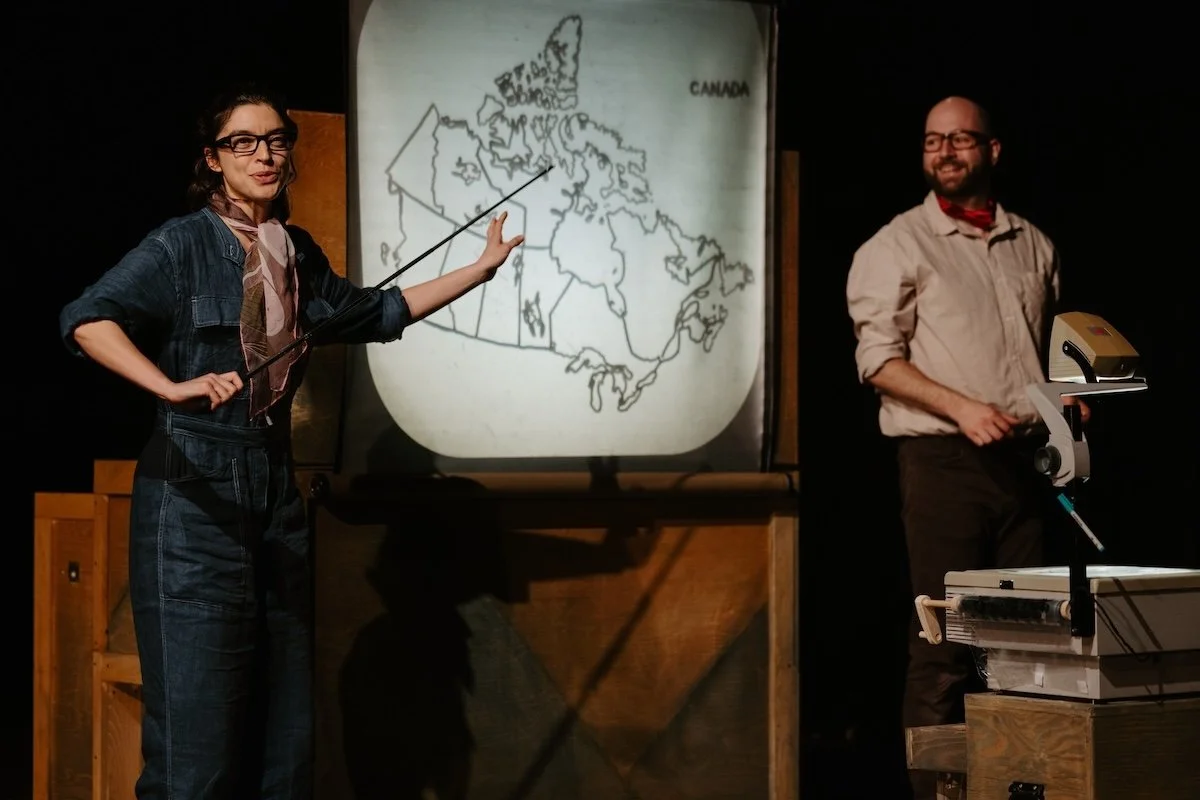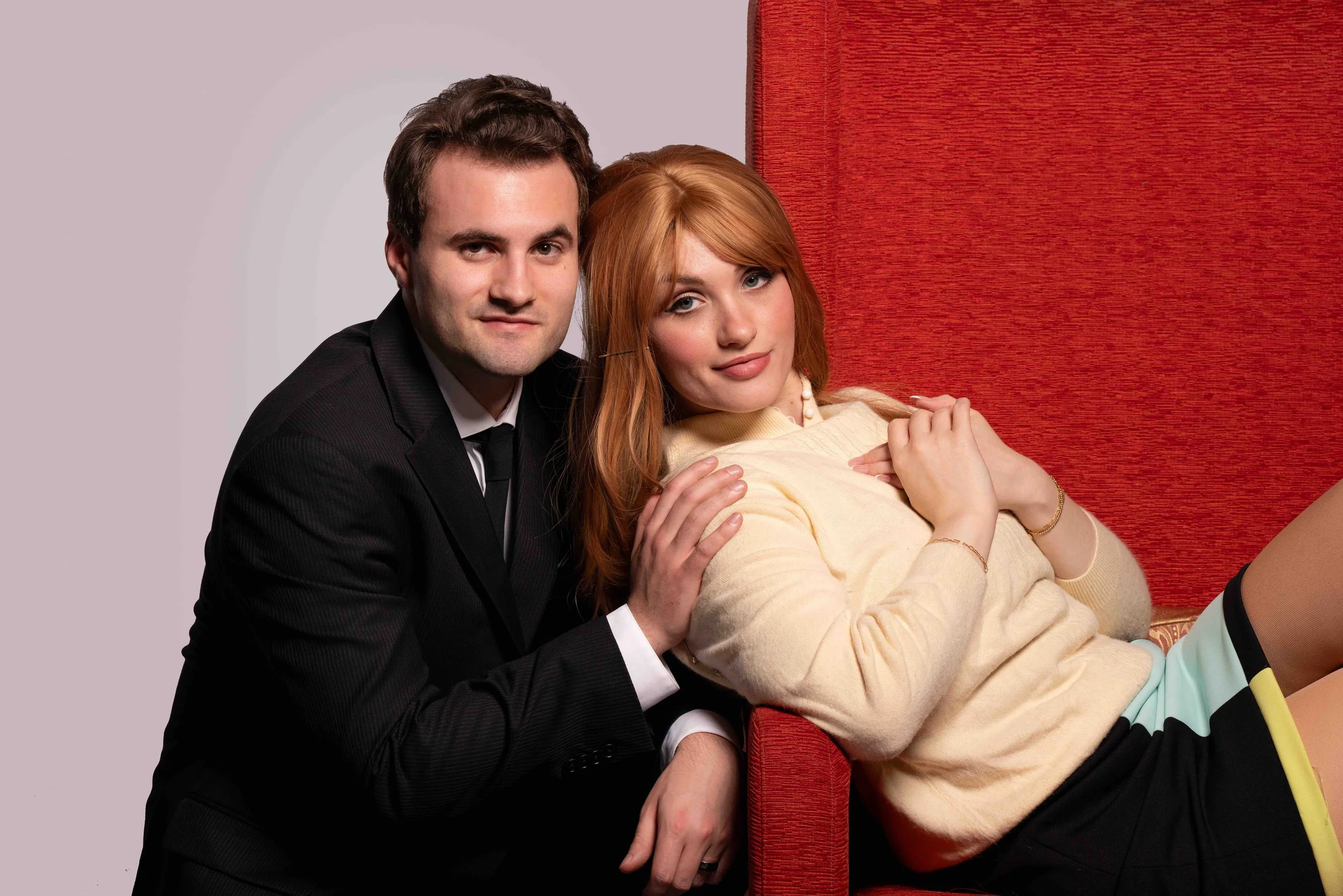Theatre review: With energized performances, inventive Cabaret whisks audiences away to pre-World War II club
Site-specific show turns intimate Gastown space into an atmospheric Kit Kat Klub, complete with a catwalk stage, VIP-table telephones, and flapper servers
Raincity Theatre presents Cabaret at 191 Alexander Street to November 5
WALKING THROUGH THE doors of Raincity Theatre’s faithfully re-created Kit Kat Club is like stepping back in time. The Gastown venue at 191 Alexander Street, built in 1910, takes on the tone of seedy glamour associated with clubs of Weimar-era Berlin with its exposed brick walls and wrought-iron railings. Complete with a small bar and live orchestra, this immersive, site-specific production transports local audiences to the risqué world of 1930s Berlin nightlife.
The story follows struggling American writer Clifford Bradshaw (Nick Fontaine), who wanders into the Kit Kat Klub on his first night in town and meets vivacious cabaret chanteuse Sally Bowles (Alex Gullason). The two fall in love, but their romance takes disastrous turns on the eve of Hitler’s rise.
Director Chris Adams, lighting designer and producer Robert Sondergaard, and producer Kat Palmer make clever use of the venue’s small footprint. The catwalk-style stage design creates a sense of intimacy, performers getting up close and personal with those seated at the small tables all around it. Seating arrangements and nooks and crannies of floor space are integrated into the production’s movement, created by award-winning choreographer Nicol Spinola. Consider the way the performers, in full-body sultriness, lean over guests to answer telephones that sit on the VIP tables closest to the stage.
Interactive elements give the show a sense of realism. During intermission, servers in flapper-era attire carry drinks on gilded trays to patrons while other cast members perform tap dances, asking for tips. Showgirls wink and sneer at viewers during musical numbers; the Emcee (a charming Graham Coffeng) tips his hat and is constantly trying to win the audience over.
Cabaret’s script premiered in 1966, and in the era of Truth and Reconciliation in Canada, some elements seem grossly outdated; “If You Could See Her (The Gorilla Song)” in particular falls terribly flat. There has been a heated debate over this musical number for decades, particularly the closing quip, “If you could see her through my eyes, she wouldn’t look Jewish at all”. The jaw-dropping line, which compares a Jewish woman to a gorilla, blatantly demonstrates the era’s anti-Semitic attitudes, which gain traction throughout the play.
The more unsavoury aspects of the production’s text are overshadowed by the actors’ energy and enthusiasm, particularly Gullason in the lead role of Sally Bowles. Gullason brings a fiery passion and depth to the character, which in a less experienced actor’s hands could easily have become a Manic Pixie Dream Girl cliché. Gullason’s wide-ranging talent is on full display during the musical number “Cabaret”, which portrays a destitute and dishevelled Bowles in the midst of a breakdown. Her tears and wails are heart-wrenching, as she convincingly portrays a woman who is confronted by the harsh and lonely reality that she must live her life for herself, not for her lover.
Costume design by Donnie Tejani dazzles in some places and somewhat lacks creativity in others. While the costumes for the dominant characters reflect their personalities (consider Bowles’s bold emerald-green attire and Fraulein Schneider’s muted rags), the vintage lingerie and plain tank tops of the ensemble are a bit lacklustre.
Overall, Raincity Theatre’s refreshingly inventive take on Cabaret will appeal to lovers of musical theatre and history buffs alike. Audiences are encouraged to put on their finest evening wear for the thoughtfully designed production, whisked away to a sizzling pre-World War II club, bawdiness and all.




